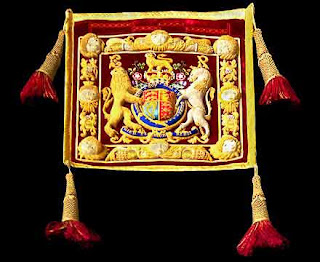Henry's dying wish was that Geoffrey be made Bishop of Winchester or Archbishop of York (ecclesiastically equal to, but traditionally subordinate to, the Archbishop of Canterbury). The next king, Richard I, made Geoffrey Archbishop of York on 20 July 1189. Richard's magnanimity was motivated by a desire to keep Geoffrey from aspiring to a place at Court. Even if he did not aspire to the throne, he had served their father by leading the army, and might be persuaded to stir up trouble against Richard. It also showed Henry's supporters that Richard, who had rebelled against his father more than once, was willing to respect Henry's wishes. Moreover, it justified Richard removing Geoffrey from the position of chancellor.
With Geoffrey's major supporter dead, however, life was not going to be easy. Richard did not trust him, and made Geoffrey pledge to live outside of England while Richard was on Crusade. Also, York already had an archbishop: Hubert Walter had been voted archbishop by the cathedral chapter, supported by Eleanor of Aquitaine. It is possible that Eleanor opposed privileges for Geoffrey because he was a product of her late husband's illegitimate affairs. Richard also appointed some positions that would normally be made by the archbishop, to which Geoffrey objected. Richard responded by confiscating lands that belonged to Geoffrey's position, saying he would return them when Geoffrey agreed to be ordained and become a proper priest and prelate. Richard was further ensconcing Geoffrey into the church structure to keep him away from the throne, and showing the kingdom not to mess with him, since he could be strict even with his relatives. Even returning the lands to him required Geoffrey pay Richard a fine of £2000.
Geoffrey's troubles were far from over. Although Richard had given him time to pay the fine, it took so long (there were elements hostile to Geoffrey that hampered his efforts), that Richard finally re-confiscated the lands and increased the fine. Because Geoffrey's ordination took place at Tours, France, there were those who rejected his authority because he had not been consecrated as archbishop by the Archbishop of Canterbury. He was even arrested and imprisoned in Dover Castle by the current chancellor, William Longchamp, who claimed that Geoffrey had not pledged loyalty to Richard. Fortunately for Geoffrey, an archbishop imprisoned by an agent of the king invoked memories of Thomas Becket's death, and there was an outcry against Longchamp's actions.
Then, in 1199, Richard died, and John became king. John had not joined his brothers in their rebellions against Henry, and often appeared to be Henry's favorite. So how did he deal with his father's "other" favorite? I'll talk about that, and Geoffrey's final fate, tomorrow.

